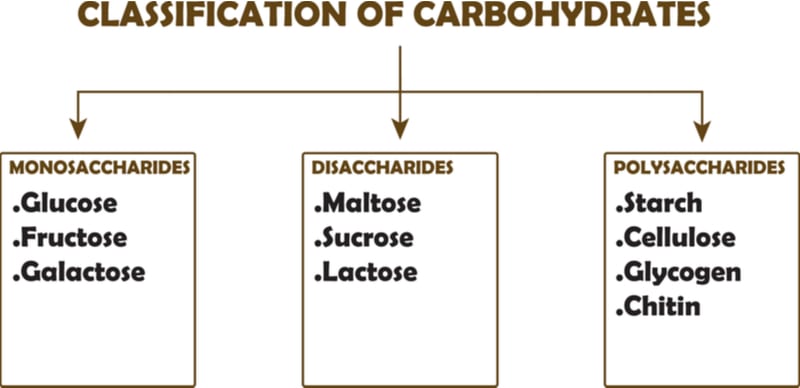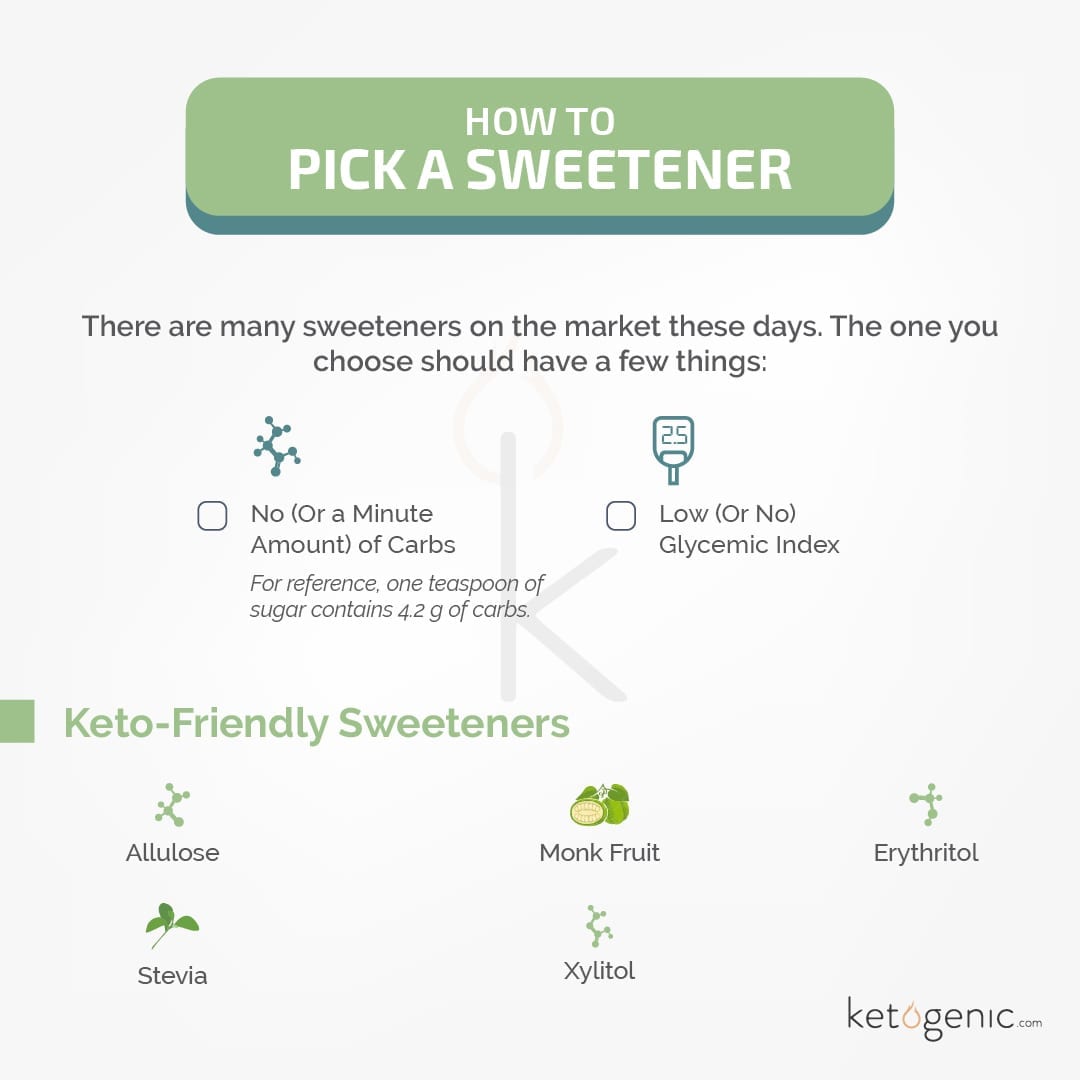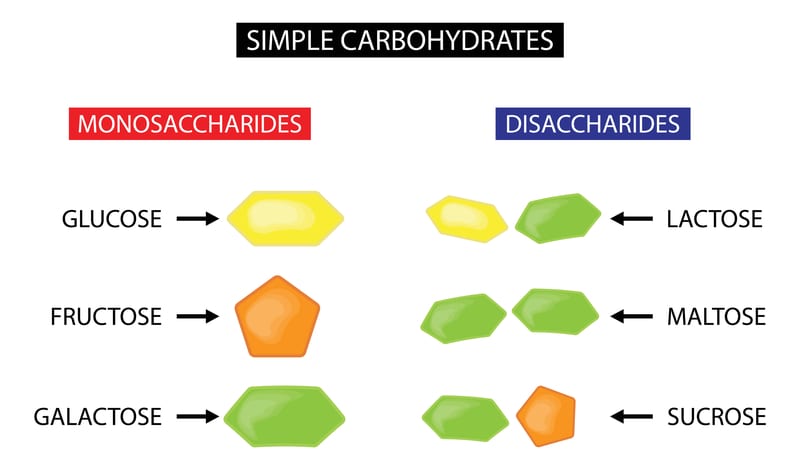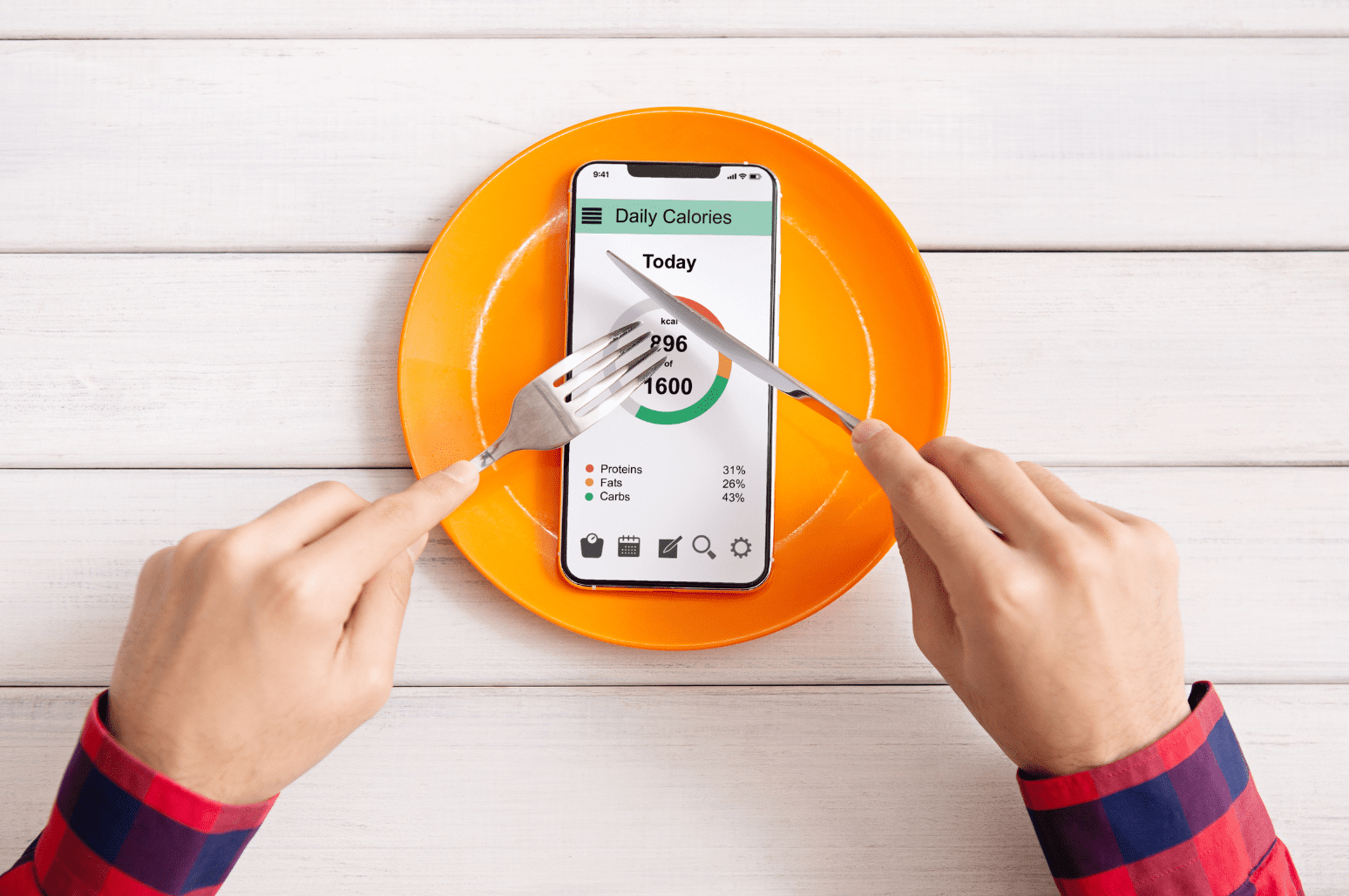
The ketogenic diet is a low-carb, moderate-protein, high-fat diet. That means you have to cut sugar out of your diet in order to stay under your carb limit. But you may be wondering, how much sugar can you have on the keto diet? How much is too much?
What Exactly is Sugar?
When you think of sugar, you probably think of white table sugar or sucrose. Sugar is just the generic name for carbohydrates that taste sweet.
Sugars can be classified based on their size. Monosaccharides are the simplest form of sugars and can’t be broken down any further while still remaining an intact sugar.
Oligosaccharides are made of a short chain of monosaccharides (less than 10), whereas polysaccharides are made of groups 10+.
You may be wondering why all of this matters? Well, because sugar is hidden in a lot of different products. As aforementioned, lactose is made from glucose and galactose. That means that when you consume lactose-rich products, they are going to have higher sugar content. Whole milk, for example, is high in lactose and has high sugar content. Cheese, however, is low in lactose and has low sugar content.
Just because a food isn’t typically seen as sweet doesn’t mean that it doesn’t still have high sugar content.

What Are the Other Names for Sugar?
Besides sugar, there are other names for sugars that may be listed on the packaging. Here are some common sugars to watch out for:
- Dextrose
- Fructose
- Sucrose
- Maltose
- Cane Sugar
- Honey
- Agave
- Corn Syrup (High Fructose Corn Syrup)
- Invert Sugar
- Molasses
- Malt (Malt Syrup)
How Much Sugar Can You Have on Keto?
As a general rule of thumb, it’s best to keep your added sugar consumption to a minimum. Ideally, this number would your sugar intake would be 0 grams, but as long as you stay under your daily carb limit, then you should be fine.
The best way for you to determine the maximum amount of sugar (and the max number of carbohydrates per day you can consume) is to test yourself. Since every individual’s biochemistry is unique, you likely won’t tolerate the same number of carbs as a person next to you. Try consuming different foods of various carbohydrate contents and testing your blood to see how they affect both your blood glucose and ketone levels. While ketones are a direct indicator of being in the metabolic state of ketosis, how your blood glucose levels react will give you insight into overall metabolic health and insulin sensitivity.
Alternatives to Sugar on Keto
Luckily, there are plenty of sugar-free alternatives to traditional sugar, so you don’t have to give up sweets all together. When those sugar cravings hit, instead reach for treats (or make ones yourself) that are made from keto-friendly sweeteners. Monk fruit, allulose, and stevia are all natural keto sugar substitutes that can replace table sugar. Erythritol is a sugar alcohol that is also acceptable for consumption on a ketogenic diet.

How Much Sugar Do You Consume on Keto?
Do you avoid sugar entirely, or just stay under your carb limit for the day? Comment below and share your thoughts with the community!










